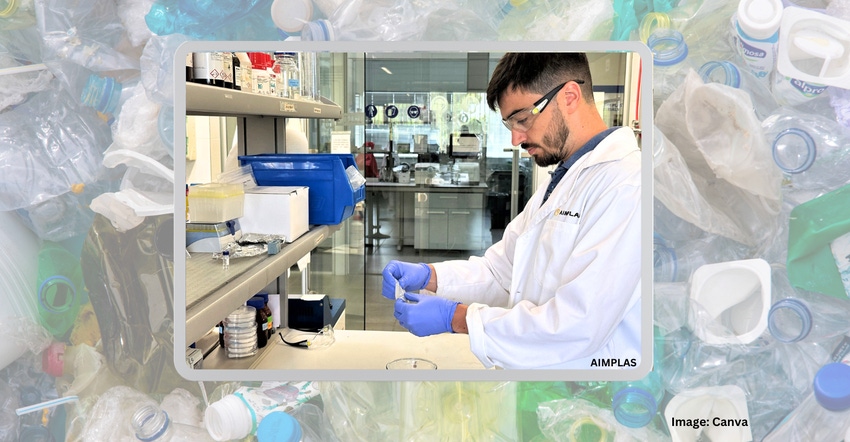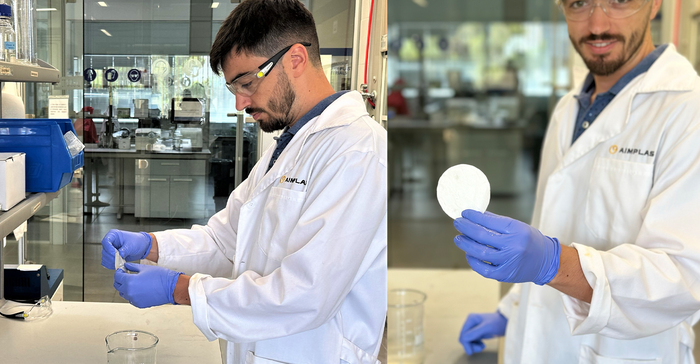Plastics Pretreatments Boost Biodegradability
As a BioICEP partner, AIMPLAS has developed depolymerization methods that give polymers a second life in a circular plastics economy.
August 30, 2023

The Bio Innovation of a Circular Economy for Plastics (BioICEP) project is making strides toward its goal of reducing waste plastic in the environment with help from Spain’s AIMPLAS, the Plastics Technology Centre, which has developed innovative pretreatment technologies that aid in the biodegradation of plastics.
BioICEP, a multi-country, multidisciplinary project that started in February 2020, is funded by Horizon 2020, a European Union research and innovation program. BioICEP’s goal is to develop sustainable alternatives to petroleum-based plastics and to reduce the amount of plastic waste in the environment.
The BioICEP project uses a combination of chemical and biological methods to transform petroleum-based plastic waste into biodegradable bioplastics. As a participant in the project, AIMPLAS is working on several plastics-pretreatment technologies.
One method is based on microwave-assisted thermochemical degradation. AIMPLAS has successfully used this method to convert nonbiodegradable plastic waste, such as low-density polyethylene (LDPE), into easily biodegradable materials; in tests, complete degradation occurred in fewer than 28 days.
Another AIMPLAS technology focuses on depolymerizing polyamides to create monomers. Microorganisms are used to degrade the monomers, which can then be converted into bioplastics.
A third AIMPLAS method uses reactive extrusion technologies that change polymeric chain structures in ways that boost the plastic’s biodegradation.

BioICEP’s three-part plastic degradation approach.
BioICEP has focused on three technologies that enhance, accelerate, and increase plastics degradation far beyond what is possible today. The project’s triple-action depolymerization system breaks down plastic waste using these consecutive processes:
Chemical disintegration, including microwave-based technology that reduces the base polymers’ molecular weight and improves biodegradation.
Biocatalytic digestion with improved enzymes. Enabling technologies include fluorescent sensors and directed evolution.
Microbial consortia (communities of diverse microorganisms) developed from individual, best-in-class microbial strains. The consortia can be engineered for highly efficient degradation of mixed plastic waste.
The products of this three-part degradation process can be used to synthesize new polymers and bioproducts, thus contributing to a circular, plastic waste-based economy.
You May Also Like


